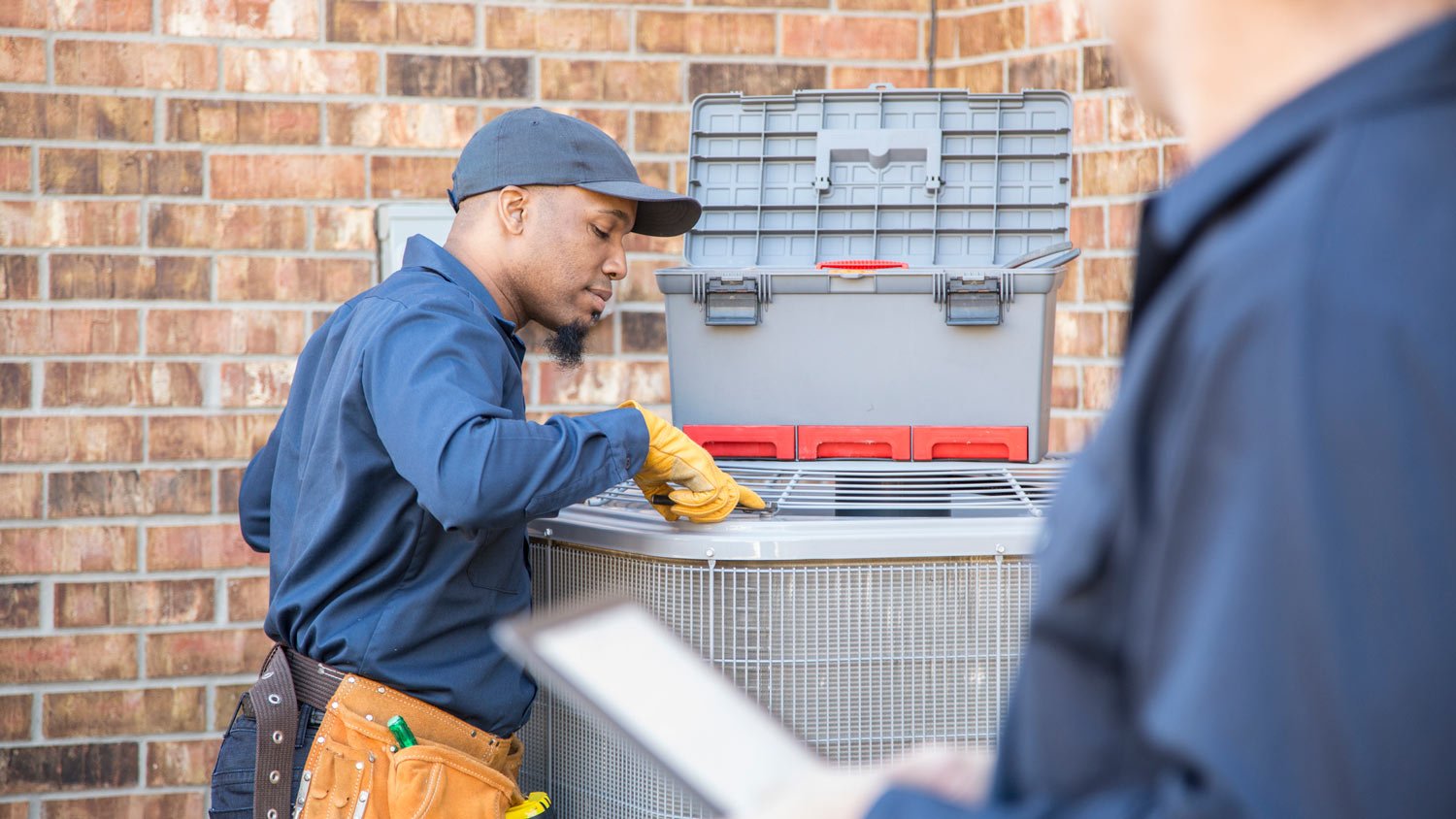
Exposed ductwork can be a smart choice even beyond aesthetics. Fortunately, exposed ductwork costs are relatively low, and easy access keeps repair costs to a minimum.
If you want to keep your home running well, hire a NATE-certified technician


A properly serviced HVAC system runs more efficiently.
NATE certification requires rigorous exams and real-world experience.
NATE-certified companies need at least 25% of certified technicians.
Homeowner's benefits are reliability, safety, and energy savings.
When your HVAC system breaks down or needs routine maintenance, you’ll likely need to hire an HVAC technician. Using a licensed and certified HVAC contractor can help ensure the job is done right. One sign of a knowledgeable, reliable company is a NATE certification. What is NATE certification in HVAC? We’ll break down what the credential means so you can make an informed choice.
North American Technician Excellence (NATE) is the largest non-profit heating, ventilation, air conditioning, and refrigeration (HVACR) certification program in the United States. Their goal is to help homeowners feel confident in the technician's skill. When researching local HVAC contractors, you may see the term “NATE certified.”
For an individual HVAC technician to obtain a NATE certification, they need two full years of HVAC field experience and to pass a series of expert-developed exams that test their real-world HVAC knowledge. A standard NATE certification lasts for two years, after which the technician is required to complete continuing education or retake a specialty exam to recertify.
HVAC companies can also receive a NATE certification by hiring a certain percentage of NATE-certified technicians to their workforce:
Basic certification: 25% of workforce
Standard certification: 50% of workforce
Elite certification: 75% of workforce
For this reason and because of their reliable skills, NATE-certified technicians are often sought after during the hiring process.
NATE (North American Technician Excellence) certification is not legally required for HVAC technicians in most areas, but hiring a professional with this certification is highly recommended. NATE-certified technicians demonstrated their expertise and proficiency in different types of HVAC systems, offering assurance of quality service.
It's a voluntary certification, yet it indicates a commitment to professionalism and ongoing training. Choosing a NATE-certified technician often means you're working with someone who is up-to-date on industry standards and best practices, which can lead to better service, energy efficiency, and long-term cost savings.

Because of the demands of earning and maintaining their certification, NATE-certified technicians have knowledge and skills that help set them apart from their competition. Here are some of the benefits of choosing a pro with a NATE certification.
Every two years, technicians must complete a set number of continuing education hours or re-take exams to recertify, so you can always trust that their knowledge of the industry and the systems in your home is up-to-date.
Testing for the NATE certification includes a wide range of knowledge, including not just HVAC systems but basic construction, chimneys, electricity, indoor air quality, roofing, and more. Technicians are also required to put their specialized skills to use in the field. That real-world experience means they're more likely to know exactly how to service your system when issues arise.
When your HVAC system is installed and serviced properly, it will run more efficiently, break down less often, and last longer. This will end up saving you money on utility bills and saving you time when it comes to annual maintenance. By working with a NATE-certified technician, you can trust that the job is correct from the start.
One of the most important parts of NATE certification is safety training, which includes staying up to date on government regulations, procedures for dealing with all worksite materials, and proper clean-up for every type of job. This training ensures safety for all parties involved and minimizes risk to your home.
As you shop around for professional services, ask trusted neighbors, friends, and family members for companies they’d recommend. You can also search online for top HVAC pros in your area.
Once you’ve found a few companies you like, check their websites or call around to verify that they have active credentials. Your state’s licensing board may also keep a list of certified technicians on their website.
In addition to the NATE certification, there are several other certifications an HVAC pro may have. Any or all of the following are signs of a well-qualified technician:
EPA Section 608 Technician Certification to handle refrigerants
HVAC Excellence Certification
Air Conditioning Contractors of America (ACCA) HVAC Quality Installation Standard Certification
The contractor you hire should also carry general liability insurance and workers’ compensation insurance.
From average costs to expert advice, get all the answers you need to get your job done.

Exposed ductwork can be a smart choice even beyond aesthetics. Fortunately, exposed ductwork costs are relatively low, and easy access keeps repair costs to a minimum.

Discover the true window AC unit installation cost to learn about labor, permits, and ways to save on your window AC project.

Repairing ductwork in a crawl space is frustrating and difficult, which is reflected in the cost. Learn why limited access results in a premium cost beyond just a simple increase in labor hours.

Prepping your furnace can extend the life of your unit and stop costly repairs. Follow these furnace maintenance tips for a warm, stress-free winter.

Ductwork losing energy? Here are six duct sealing methods that will help you get some big savings on your monthly energy bills.

For your furnace to run, the pilot light needs to be on—so what do you do when it goes out? Learn how to relight the pilot light on a furnace in this guide.